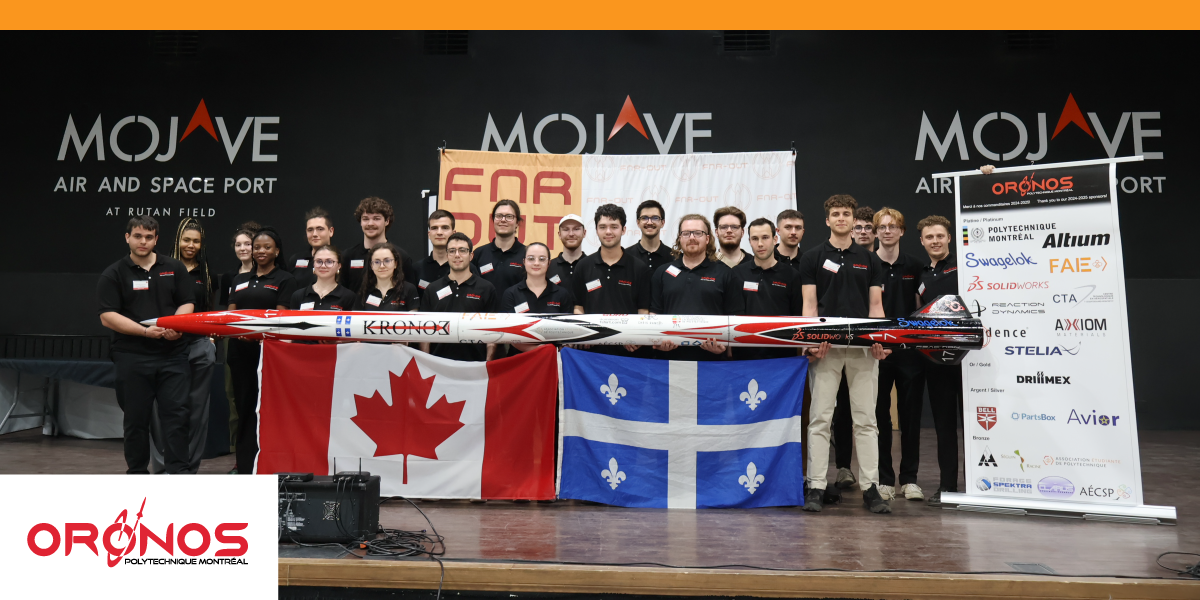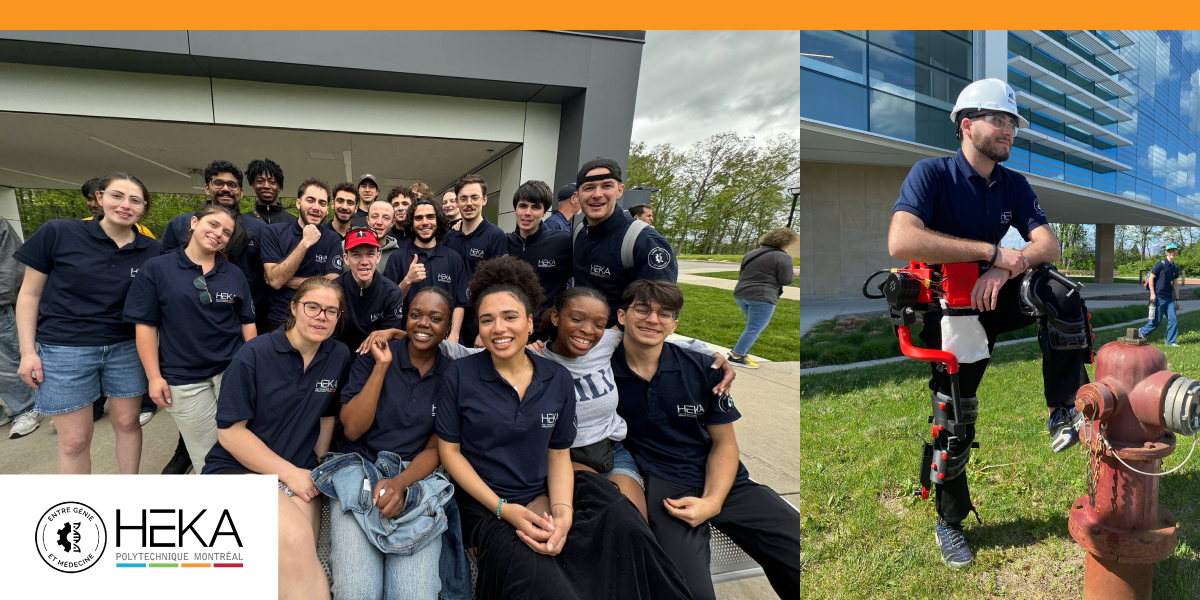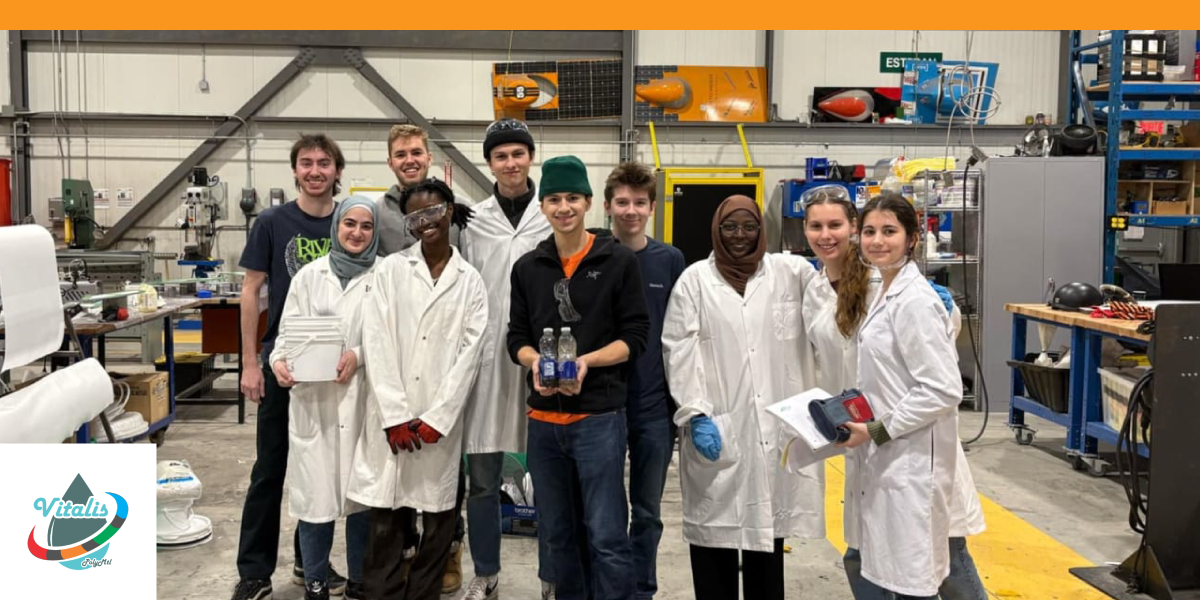Polytechnique Montréal students showcased space rockets, an electric car, remote-controlled planes, drones, robots and exoskeletons at their summer expo

Montréal – Polytechnique Montréal’s student technical societies invited the media to their summer 2025 innovation expo. Seven Polytechnique Montréal student teams—Formule Polytechnique Montréal, Avion Cargo, Zénith, Oronos, Héka, PolyStar and Vitalis presented their latest projects to more than 200 young attendees of the Folie Technique science summer camp, ages 5 to 17, in an event that sparked the curiosity and wonder of the budding scientists. The cutting-edge concepts on display included an electric car, remote-controlled planes, drones, aircraft, rockets, exoskeletons and robots, all designed by members of Polytechnique’s student and research community.
This exhibition was an opportunity for our technical societies to show their latest designs and discuss the progress of their research on a number of large-scale projects. Sustainable development and environmental issues are important considerations in the projects and technologies that were presented to the Folie Technique campers, the environmentally responsible citizens of the future.
“This show is where our students and researchers get to exhibit their impressive achievements and present them to curious and enthusiastic children and teens, many of whom may well be part of the next generation of Quebec scientists,” said Maud Cohen, President of Polytechnique Montréal.
“This is truly one of our favorite activities of the summer,” said Julie Doucet-Lamoureux, Executive Director of Folie Technique. “It’s exciting to see the enriching and lively interactions between Polytechnique students and our science campers. There’s always a festive atmosphere and an inclusive vibe.”
Our technical societies are making an impression around the world
Many of our technical societies recently travelled to major national and international events and competitions to present their innovations and their eco-responsible scientific approach.

This year, the Oronos team, dedicated to designing and launching high-powered rockets, won prizes at two rocket competitions. Oronos’ Kronos rocket, powered by its Kraken engine and designed to reach altitudes between 20,000 and 45,000 feet, finished second in its category at FAR-OUT (Friends of Amateur Rocketry – Oxidizers Uninhibited Tournament), held in the Mojave Desert in California from May 26 to June 2.
A few days later, Oronos also placed second with its new Phobos & Deimos two-stage rocket at the International Rocket Engineering Competition (IREC), one of the largest university rocketry meets, held in the Chihuahua Desert, Texas from June 9 to 14.
Over the past few years, Oronos has been working on several fronts to align its projects with sustainable development principles. In 2019, they installed solar panels to power the equipment, computers and electronics needed to launch their rockets. They are continuing their research into the use of bio-based materials and composites, and are planning a life-cycle analysis of their rocket’s manufacture to determine its environmental impact.

In the biomedical field, the Héka technical society recently placed second overall in the North-America-wide Applied Collegiate Exoskeleton Competition (ACE 2025), which tests the functional capabilities of exoskeletons designed and built by students at participating universities. The leg exoskeleton and robotic arm designed by Héka are intended to support firefighters by boosting their strength and endurance. The exoskeleton successfully performed all the target tasks, which were designed to assist novice firefighters in predetermined skill tests.
Héka applies a sustainable engineering approach to the manufacture of its prototypes and the purchase of electrical, electronic and mechanical equipment. It also follows rigorous local purchasing and component recycling principles in its operations. Héka’s striking exoskeleton was on display at the science expo on August 6 and its designers and operators were on hand to give demonstrations and answer questions from the science campers.

In June, the Formule Polytechnique Montréal racing car finished third in the autocross race and fourth overall in the Formula SAE Electric competition in Michigan, in a field of 27 North American universities. For the first time, Formule Polytechnique Montréal entered two cars in this major annual electric car competition. Formule Polytechnique Montréal is a team of engineering students dedicated to designing and building a high-performance single-seater EV to compete in the Formula SAE Electric competition, the world’s largest engineering competition with more than 500 teams entered in dozens of events.
Formule Polytechnique Montréal applies a sustainable engineering approach in the design of its projects and the manufacture of its prototypes. It also promotes local purchasing and recycling in its operations.

Zénith is a Polytechnique Montréal technical society that designs drones and motorized aircraft. This year, it presented two prototypes (a drone and an airplane) at the 16th annual AEAC Student UAS Competition in Alberta and, despite a series of setbacks, placed 6th out of 15 teams. It also won the Team Spirit Award, presented by the aerospace manufacturer Lockheed-Martin, for its resilience.
Zénith includes students from the fields of mechanical engineering, aerospace engineering, electrical engineering, and computer and software engineering. Its purpose is to create a dynamic research environment where students from all engineering disciplines can immerse themselves in the practical and theoretical aspects of drones and aircraft.
Zénith’s aircraft was on display at the science expo, where it was a focus of attention for the campers.

PolySTAR, a student technical society affiliated with Polytechnique Montréal’s Mechanical Engineering Department, works to make robotics accessible to all. This year, PolySTAR proudly represented Polytechnique at the RoboMaster North America competition in San Diego. Its 2nd place finish in the 3v3 group stage, strong performance in the 1v1 competition and excellent team cohesion propelled PolySTAR to 7th place overall—its best result to date.
PolySTAR is also committed to sustainable development, taking an environmentally responsible approach at every stage of its projects. From prototype design to material sourcing, it looks to local and eco-friendly solutions to reduce its environmental footprint.

Vitalis’ mission is to design innovative water treatment systems that can withstand simulated natural disasters. The team of students from various engineering disciplines apply their know-how to address real-world environmental challenges. Their participation in national and international competitions supports Vitalis’ development of sustainable solutions while helping to train the next generation of water engineers.
About Polytechnique Montréal technical societies
Polytechnique Montréal has 19 technical societies with more than 400 student members, 30% of whom are women passionate about science and engineering. The oldest of our societies was founded in 1998 and has a 28-year tradition of excellence. The societies enter innovative, sustainable prototypes developed by their multidisciplinary teams in major local and international competitions on land, at sea and in the air, where they have won many awards and are proud ambassadors for the Polytechnique community in Quebec, Canada and abroad. The technical societies are also socially engaged, organizing more than 50 educational activities each year to make science and engineering accessible to all.
About Folie Technique
Folie Technique is a non-profit organization established in 1991 at the initiative of engineering students at Polytechnique Montréal. It now focuses on science outreach and organizes activities such as a science summer camp and numerous science workshops. Every year, thousands of young people discover science through these activities. Folie Technique’s day camp is certified by the Association des camps du Québec (ACQ) and is a member of Actüa.
About Polytechnique Montréal
Founded in 1873, Polytechnique Montréal is one of Canada's largest engineering education and research institutions. It is located on the Université de Montréal campus, the largest French-language university campus in the Americas. With more than 61,500 graduates to date, Polytechnique has educated over 22% of the Ordre des ingénieurs du Québec's current membership. Polytechnique offers about 120 programs taught by over 300 professors, and welcomes in excess of 10,000 students yearly.
-30-
MEDIA KIT – VIDEOS AND PHOTOS: https://polymtl.info/P9uLv
MEDIA ENQUIRIES AND INTERVIEW REQUESTS
Christian Merciari
Communications Department
Polytechnique Montréal
Cell: 514-742-8586
christian.merciari@polymtl.ca


